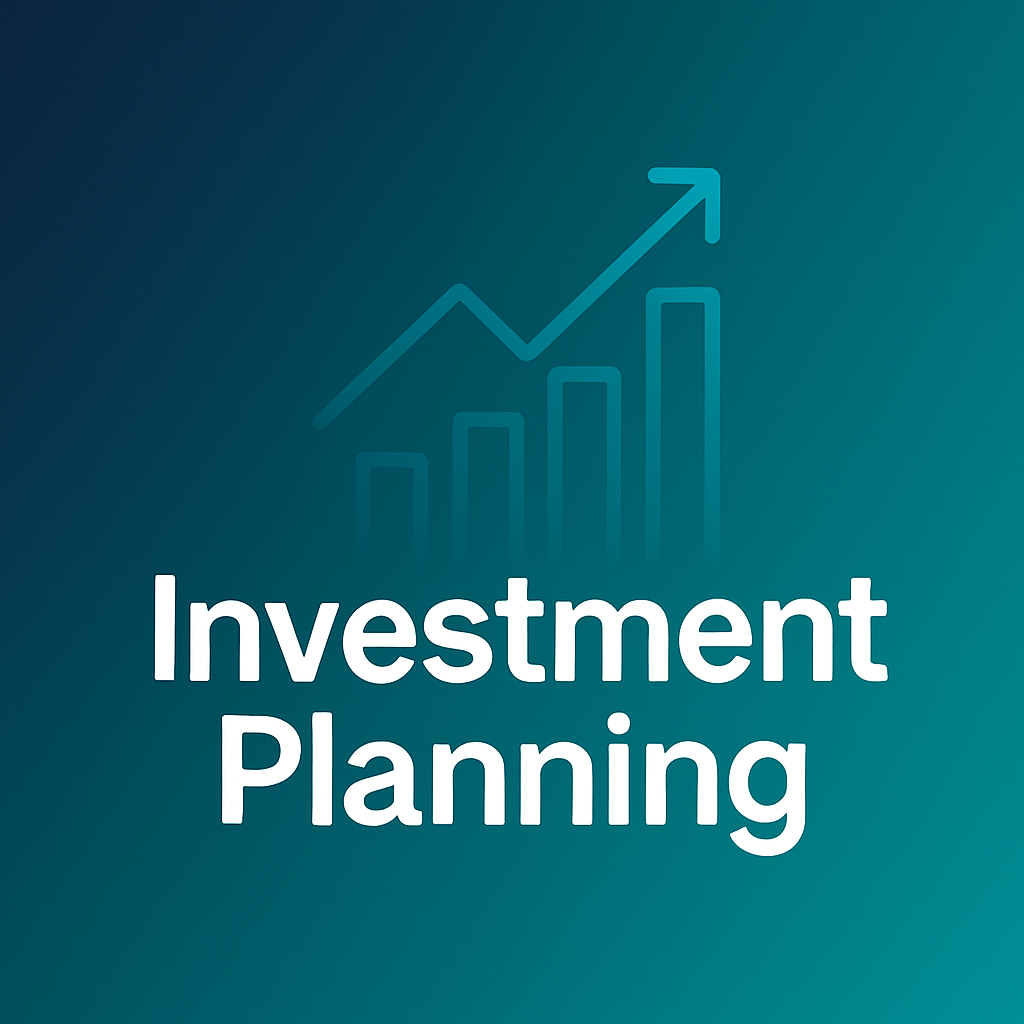
Investment planning is the foundation of financial success. Whether you’re saving for retirement, a home, or your child’s education, knowing how to invest smartly can help you turn your goals into reality. In this blog, we’ll explore what investment planning is, why it matters, how to get started, and how it can help you build a stable financial future.
What is Investment Planning?
Investment planning is the process of aligning your financial goals with the right investment strategy. It involves reviewing your current financial situation, understanding your goals, assessing how much risk you’re willing to take, and creating a roadmap to grow your money over time.
Think of it as your personal financial GPS. It tells you where you are, where you want to go, and how to get there—with fewer bumps along the way.
How to Use Investment Planning to Reach Your Financial Goals
Investment Planning is Personal
There’s no one-size-fits-all plan when it comes to investing. The best investment strategy depends on who you are and what you want to achieve. Start by answering the following questions:
What’s My Current Financial Situation?
Look at your income, expenses, savings, debts, and assets. This gives you a realistic idea of how much you can afford to invest. It’s the first step to building a solid plan.
What Are My Financial Goals?
Are you saving for retirement, a house, your kids’ education, or maybe starting a business? Your goals will shape your investment choices. Be specific and set timelines—it helps make your plan actionable.
What’s My Time Horizon?
How soon do you want to reach each goal? Short-term goals (like buying a car in 2 years) require different investments than long-term ones (like retirement in 30 years). Your time horizon will impact how aggressive or conservative your portfolio should be.
What’s My Risk Tolerance?
Are you okay with market ups and downs, or do you prefer a more stable, low-risk path? Understanding your risk comfort helps you choose the right mix of investments—whether it’s stocks, bonds, mutual funds, or ETFs.
How Do I Choose an Investment Account?
Your goals and time horizon will help you choose between different types of accounts—like a regular brokerage account, a retirement account (RRSP), or a tax-free savings account (TFSA). Each has different tax benefits and contribution rules, so choose what aligns best with your strategy.
How Do I Build My Investment Portfolio?
Diversification is key. Mix different asset types (stocks, bonds, real estate, etc.) to reduce risk and improve returns. It is important to spread the investments across various asset classes. Don’t put all your eggs in one basket.
How Often Do I Need to Revisit My Investment Plan?
Review your investment plan at least once a year—or whenever you experience a major life change like a new job, marriage, or having a baby. Markets change, and so do you. Make sure your plan keeps up with your life.
Benefits of Investment Planning
Still wondering why investment planning is important? Here are some of the top benefits:
– Clarity and control: You know where your money is going and why.
– Better decisions: A plan gives you confidence to make smarter financial moves.
– Wealth creation: Strategic planning helps grow your assets over time.
– Stress reduction: You’ll feel more secure knowing you’re on the right track.
– Risk management: Planning helps you prepare for unexpected events and market changes.
CIRO (Canadian Investment Regulatory Organization) highlights how a financial plan can improve overall well-being and give peace of mind. It’s not just about the money—it’s about what the money helps you achieve.
FAQ: Why Investment Planning is Important (Asked to Andre Tcholakian – Financial security Advisor and Mutual Funds Representative)
Why should I start investment planning now?
The earlier you start, the more time your investments have to grow. Thanks to compounding, even small investments can lead to big returns over time.
Can I do investment planning on my own?
Yes, you can start on your own by defining your goals and researching basic investment options. But a financial advisor can help make the process smoother and more tailored.
What’s the difference between saving and investing?
Saving keeps your money safe but grows slowly. Investing carries some risk but offers the potential for higher returns—especially for long-term goals.
How much should I invest each month?
It depends on your income, expenses, and goals. Start with what you can afford, even if it’s small. The key is to be consistent.
Does investment planning really make a difference?
Absolutely. Having a clear plan improves decision-making, reduces emotional investing, and increases the chances of achieving your goals—whether they’re 2 years or 20 years away.
Atfinance is here to help you build smarter financial habits. Start your investment planning journey today, and let your money work toward your dreams!







